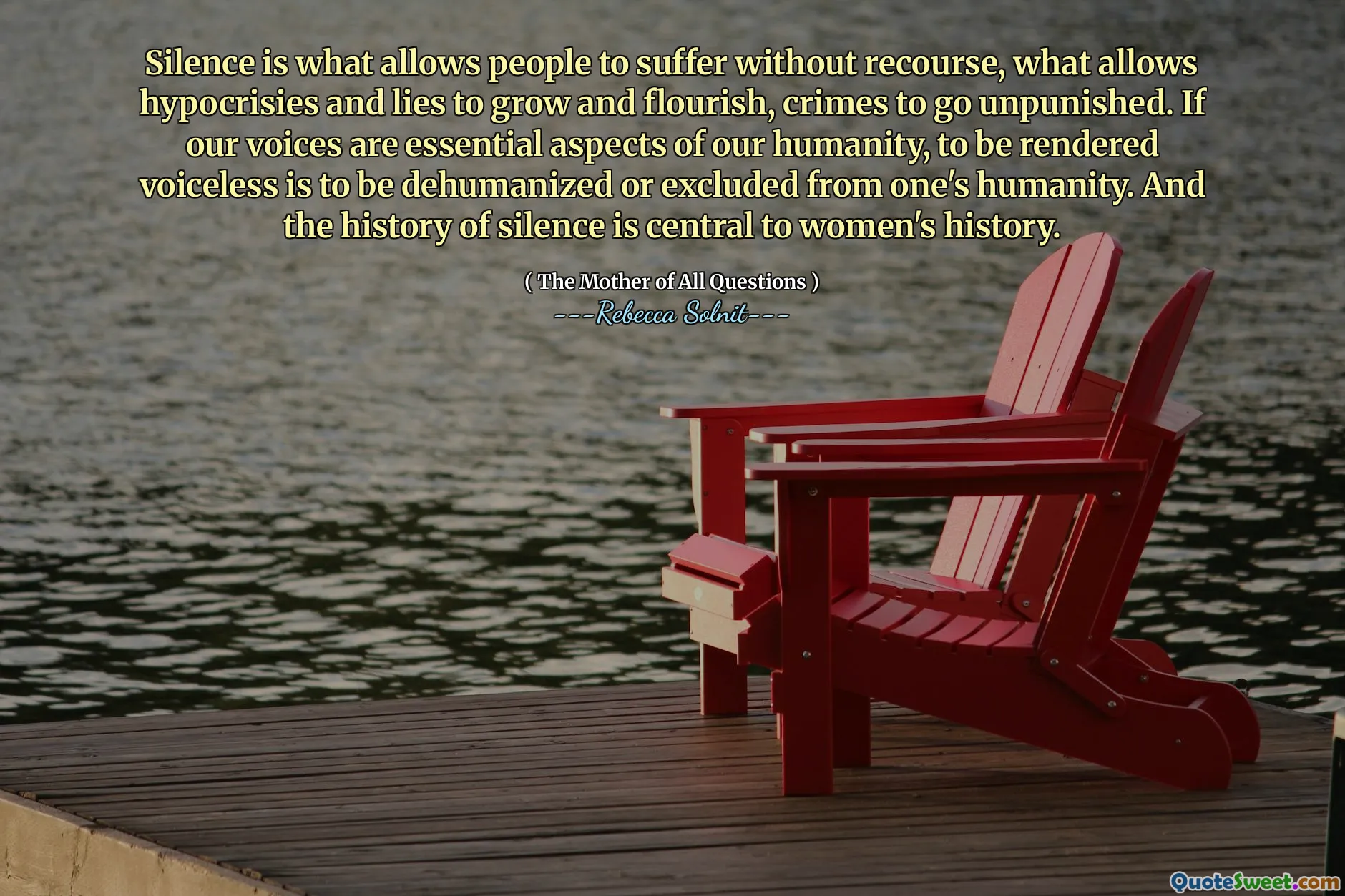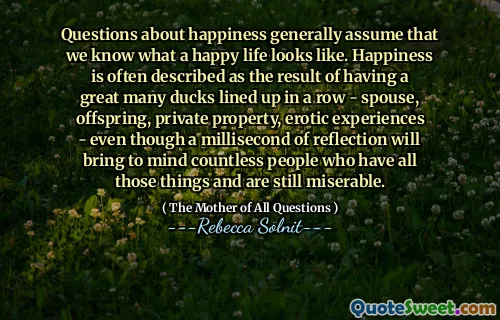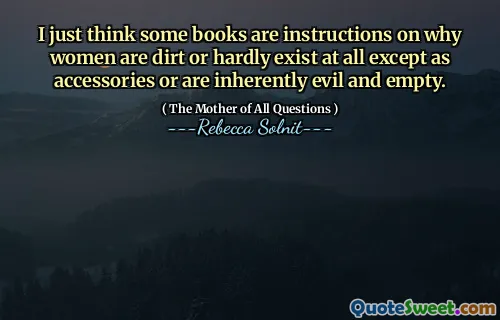
Silence is what allows people to suffer without recourse, what allows hypocrisies and lies to grow and flourish, crimes to go unpunished. If our voices are essential aspects of our humanity, to be rendered voiceless is to be dehumanized or excluded from one's humanity. And the history of silence is central to women's history.
The quote poignantly underscores the profound impact of silence within societal structures, especially in the context of gender inequality. Silence can serve as a mechanism of oppression, where the voiceless are rendered invisible and their suffering unacknowledged. This dynamic not only permits injustices, hypocrisies, and lies to thrive unfettered but also perpetuates a cycle of dehumanization, stripping individuals of their agency and dignity. Throughout history, women have often been silenced—denied the right to speak out, share their experiences, or challenge prevailing narratives—thus excluding their voices from the broader fabric of societal progress. The act of silence becomes a powerful tool of control, enabling perpetrators to evade accountability while victims endure in quiet despair. However, this silence is not natural nor inherent, but a consequence of systemic suppression. Recognizing this helps in understanding the importance of amplifying marginalized voices, especially those historically silenced. Genuine progress hinges upon creating spaces where voices can be heard and abuses can be confronted. The quote invites readers to reflect on the peril of staying silent in the face of injustice and emphasizes that reclaiming speech is an act of resistance and reclaiming one’s humanity—particularly poignant in the ongoing struggles faced by women worldwide. It challenges us to consider how history might be different if silence had not been allowed to persist for so long, and how conscious efforts can help break the cycle, fostering a society where truths are spoken and injustices confronted.








